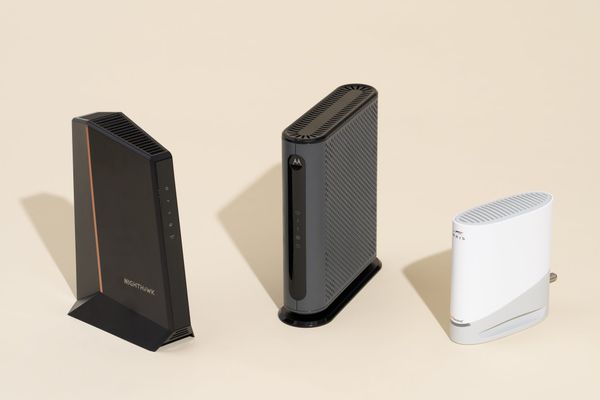From home automation to smartwatches and fridges, Internet of Things (IoT) devices have become an integral part of our daily lives. And while they make our lives a lot easier, they contain loads of data that malicious actors can take advantage of. Therefore, protecting your smart home and IoT devices is mandatory.
Luckily, one of the easiest ways to do so is to use a VPN for IoT. Virtual private networks encrypt and protect connections between smart devices and the internet. That way, they prevent unauthorized access and boost your security & privacy.
This article delves into the vulnerabilities inherent in IoT devices and explains how VPNs can address these risks. Moreover, we will recommend some VPNs and tips on protecting your smart home from digital threats.
Understanding IoT Device Vulnerabilities
IoT vulnerabilities are flaws that can be taken advantage of by malicious actors. That way, they can compromise your smart devices and steal your precious data. A few of the most common weaknesses are:
- Weak authentication. In most cases, smart devices come with default usernames and passwords that can be easily guessed. That way, malicious actors and snoopers can quickly access your cameras, smart locks, or phones.
- Shabby encryption. Suppose your devices use a weak cipher to communicate with other IoT gadgets. In that case, chances are your data can be intercepted and exposed.
- Insecure network connections. Weak wifi network configurations can leave a massive entry point for hackers. Thus, they could infiltrate and compromise the security of your smart devices.
- Vulnerable third-party components. Some of your devices might use third-party add-ons, modules, or libraries. If you’re not careful enough, you might get a malicious file that will wreak havoc on your gadgets.
What are VPNs, and how they enhance IoT security
A virtual private network is an excellent tool to eliminate previously mentioned vulnerabilities. By encrypting your data, a VPN creates a secure and confidential tunnel between your IoT devices and the internet. Plus, it hides important information such as your browsing history, IP address, and your actual location.
Many people on the internet claim that a VPN can enhance your smart home security. Moreover, a virtual private network can help you avoid threats like Man-In-The-Middle attacks. And, of course, you can bypass geo-restrictions and access more content on various websites and streaming sites.
How to choose the right IoT VPN?
You have to be careful when choosing a VPN for your smart home. A virtual private network with shabby security and privacy features might compromise your safety and leak your information. Therefore, when choosing a service, pay attention to these things:
- Strong security features. AES-256 encryption is mandatory for safety. Additionally, a VPN should have a robust kill switch and IP & DNS leak protection if something goes awry.
- Guaranteed privacy. No one should collect your information, especially your VPN provider. So, only pick services with independently-audited no-logs policies. Moreover, ensure they are based in a privacy-respecting jurisdiction with no data retention laws.
- Fast tunneling protocols. You don’t want snail-like speeds when connecting your devices to the VPN. Therefore, check if the provider offers the most rapid tunneling protocols, such as WireGuard or NordLynx.
- Quantity & quality of servers. If you have loads of servers in various countries, chances are you can unblock more content online. Moreover, the hardware should be RAM-only to enhance your privacy.
- Value for money. Paying more doesn’t mean you’ll get better security features. You can find a cheap top-shelf VPN for less than $6.00/month.
VPN for IoT: suggestions
With so many VPNs on the market, choosing the right one for your smart home might be a bit of a challenge. To make things easier for you, we suggest taking a look at these tried and tested IoT VPNs:
- NordVPN. The fastest and most secure VPN on the market. It offers excellent cross-platform compatibility with easy-to-follow setup guides. Additionally, you can configure this VPN on your router. Plus, it’s jam-packed with loads of useful features.
- Surfshark VPN. A provider that offers infinite connection and easy setup on your home routers. Moreover, this VPN also provides excellent security and privacy features that will help you mitigate dangers. Not to mention, it won’t mess with your internet speeds.
- ExpressVPN. You can easily set this service up on a router, as ExpressVPN offers an applet for routers. Moreover, it provides much-needed safety for all of your smart devices. While a tad expensive, ExpressVPN guarantees excellent connectivity and additional features.
Other ways to to improve IoT security & privacy
While a VPN for IoT can increase the safety of your smart devices, it’s essential to use good privacy & security practices. For example, you should constantly check if there are any new updates for your devices. New patches eliminate vulnerabilities and bugs that might compromise your safety.
Additionally, you should always use strong passwords. Each gadget should have a different password that consists of various numbers, symbols, and letters. Moreover, you can implement 2-factor authentication to prevent potential breaches and limit unauthorized access to personal information.
Lastly, don’t forget to disable unused features and ports. Otherwise, if you have everything on, malicious actors will have more ways to exploit vulnerabilities in IoT devices. From time to time, make sure that those features are off, as they can be activated again after updates.


